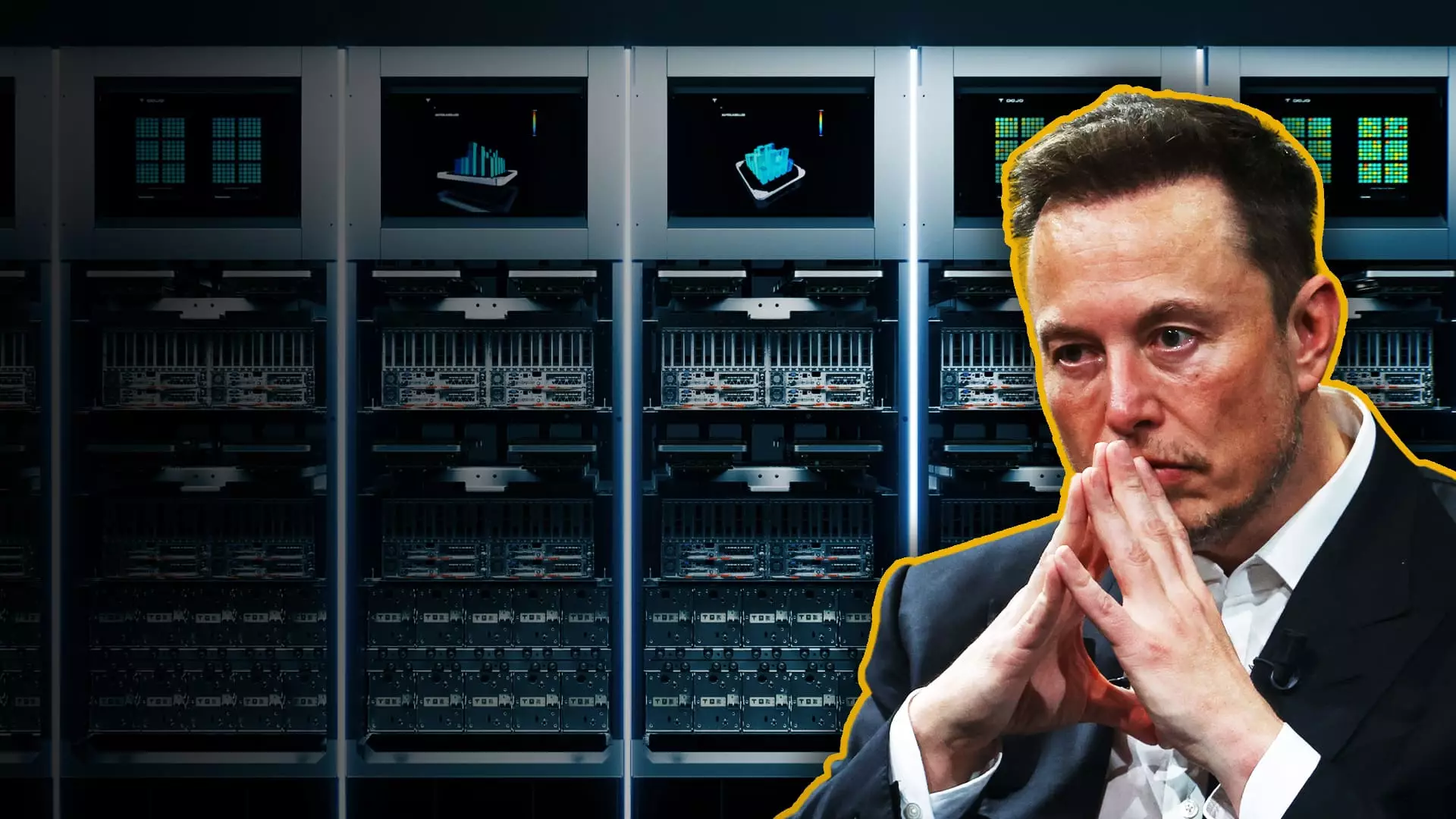In the ever-evolving landscape of technology, Elon Musk stands as a monumental figure, shaping industries with his relentless drive for innovation. As the CEO of Tesla and the newly minted xAI, Musk is not merely content with revolutionizing electric vehicles; he is setting a monumental stage for artificial intelligence (AI) to intertwine deeply with business operations. By rebranding Tesla as an AI and robotics company rather than a traditional car manufacturer, Musk is signaling a definitive shift in how he envisions the company’s trajectory. This rebranding underscores a broader narrative about the ability of artificial intelligence to transcend conventional boundaries and reshape entire business paradigms.
At the core of Musk’s grand vision lies Dojo, Tesla’s customized supercomputer. This formidable machine is not just another technological marvel; it represents a critical pivot toward developing a suite of AI-driven features that promise to enhance driver assistance functionalities and autonomous driving systems. Tesla is reportedly investing an impressive $500 million into the construction of this supercomputer in Buffalo, New York, showcasing the scale of Musk’s ambition. Alongside Dojo, Tesla is developing a second supercomputer cluster, dubbed Cortex, at its headquarters in Austin, Texas. These initiatives indicate not merely a focus on producing electric vehicles but a transformative approach to harnessing data for enhancing AI capabilities.
Central to the operations of Dojo is data—the backbone of machine learning and AI development. Every Tesla vehicle, equipped with eight cameras, contributes to a vast reservoir of video and telemetry data, streaming back to the company as these cars navigate the world. With an estimated 5 million cars on the road, each vehicle logging approximately 10,000 miles annually, the potential for harnessing this trove of real-world data is immense. Steven Dickens, chief technology advisor at Futurum Group, highlights the significance of this strategy, noting that this training set can dramatically enhance Tesla’s Full Self-Driving (FSD) system, bringing the company closer to realizing fully autonomous vehicles.
Apart from driving advancements in FSD and Autopilot features, this strategic data utilization is crucial as Tesla grapples with regulatory scrutiny. Despite their marketing gambits, neither Autopilot nor FSD currently offers full autonomy, a fact that has drawn criticism for perceived overpromising. Nevertheless, as the competition heats up—not just from traditional manufacturers but also from tech giants like Alphabet and Amazon—Tesla’s ability to deliver on its autonomous vehicle promise is under scrutiny. Analysts have pointed out that the company’s valuation hinges significantly on achieving robotaxi operations, making the success of Dojo not just an operational advantage but a financial imperative.
Musk’s ambitions stretch beyond the automotive sector. With the establishment of xAI, Musk aims to develop cutting-edge AI products that rival existing conversation models from OpenAI and other heavyweights. This venture is fueled by Musk’s desire to create responsible artificial intelligence solutions while also countering what he perceives as a monopolization of AI capabilities among a few dominant players. The supercomputer in Memphis, Tennessee, being built for xAI, dubbed Colossus, exemplifies this ambition and is intended to power innovative AI applications, such as Grok, xAI’s proprietary chatbot.
Moreover, Musk’s plans for a humanoid robot, Optimus, entail leveraging the capabilities of Dojo. This highlights a multifaceted approach to AI that extends beyond cars to potential applications in manufacturing and logistics, indicating a futuristic vision where humanoid robots play a crucial role within Tesla’s operational framework.
Musk is not merely investing in technology but committing to a staggering $10 billion for AI development this year alone. This level of financial investment underscores the seriousness of his ambitions and the competitive landscape in which he operates. As Tesla navigates through recent earnings reports that reflect more subdued growth, the pressure is mounting not just to innovate but to deliver results that reinforce investor confidence and accelerate fulfillment of the company’s lofty promises.
Elon Musk’s ventures into the realm of supercomputing and AI represent more than just technological advancements; they are part of a grander vision to redefine industry standards and potentially, society itself. As the competition heats up, the effectiveness and success of these initiatives will be closely watched, marking a pivotal moment in both AI and the automotive sectors as we move deeper into the artificial intelligence age.


Leave a Reply